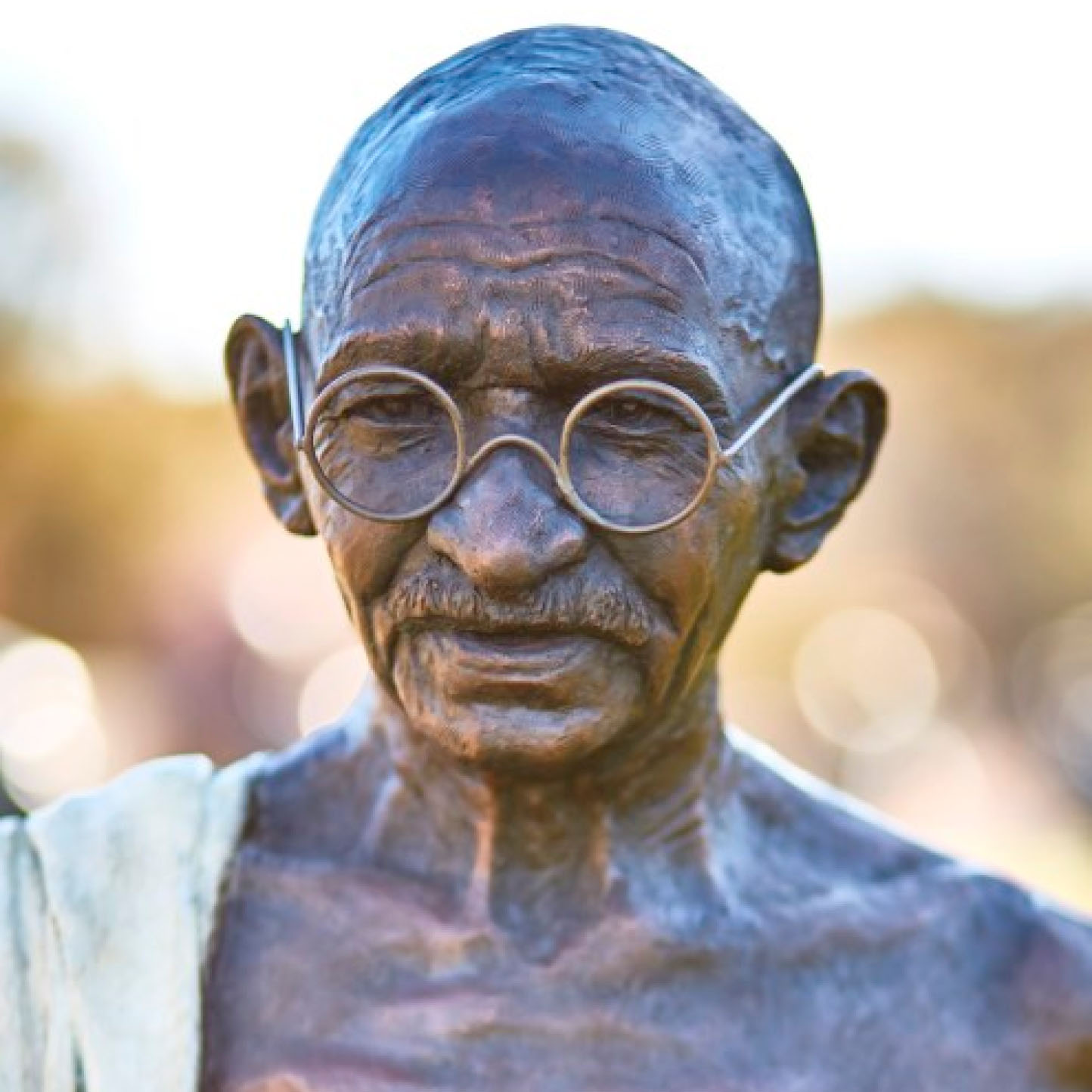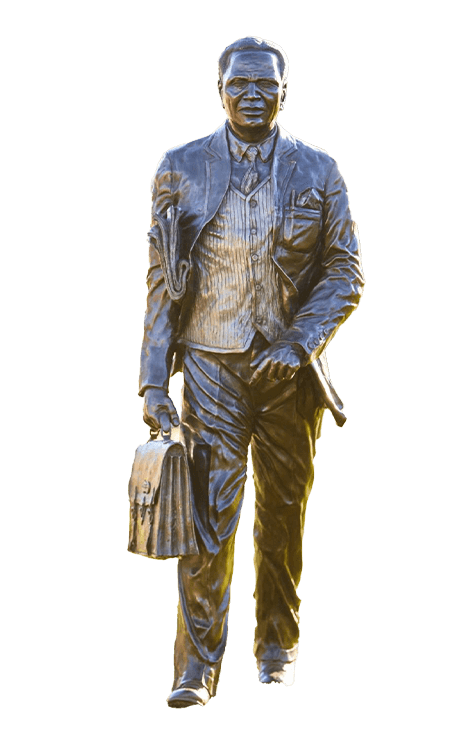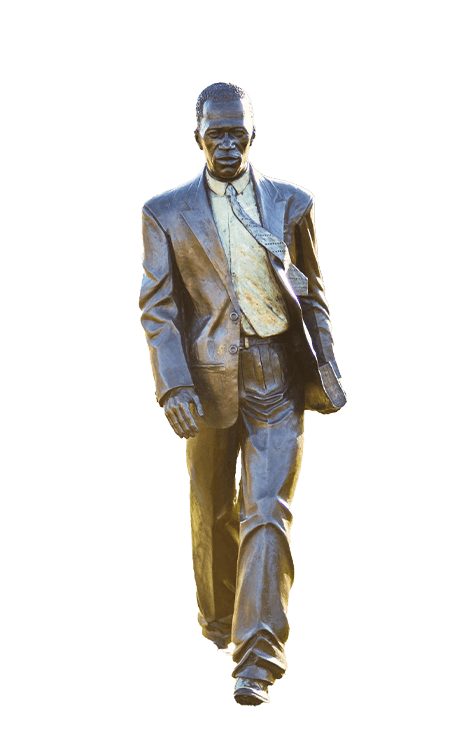


"Yes, you may. I refuse to get out voluntarily.""
Gandhi’s response to the threat by a train official to call a police constable insisting he leave his first class compartment. My Experiences in Truth, 1925
Mohandas Gandhi
1869 - 1948
Founder of Satyagraha, Lawyer, Pacifist
Mohandas Gandhi was the father of passive resistance whose Satyagraha philosophy, based on non-violent civil disobedience, inspired global movements throughout the 20th century. He led Indias struggle for independence in 1948 and influenced South Africas Resistance and Defiance Campaigns of the 1940s and 1950s, and later in the 1980s. The African-American civil rights movement of the 1960s also drew direct inspiration from Gandhi.
Gandhi spent 21 years in South Africa, coming to Durban as a lawyer in 1893 to settle a commercial dispute. On his trip to court he was thrown off the train for daring to sit in the Whites Only first class compartment, an event that would trigger a life-long desire to fight racial injustice.
Gandhi united Indians from different communities, languages and religions living in South Africa from the 1860s. He helped found the Natal Indian Congress in 1894 and became a driving force behind Indian resistance campaigns between 1906 and 1913.
He returned to India in 1914. Some of his family remained behind and his granddaughter Ela Gandhi later served as a Member of Parliament after 1994. She represented Phoenix, a settlement established near Durban by her grandfather in 1904 as an experiment in communal living.
Did You Know?
Gandhi loved punctuality and hated to keep a crowd waiting. On the day he was murdered, he was lamenting his lateness for communal prayer, saying he should have been there at the stroke of five. Just after greeting the crowd, a young man came forward and shot him three times in the chest. He died before medical help could arrive.

